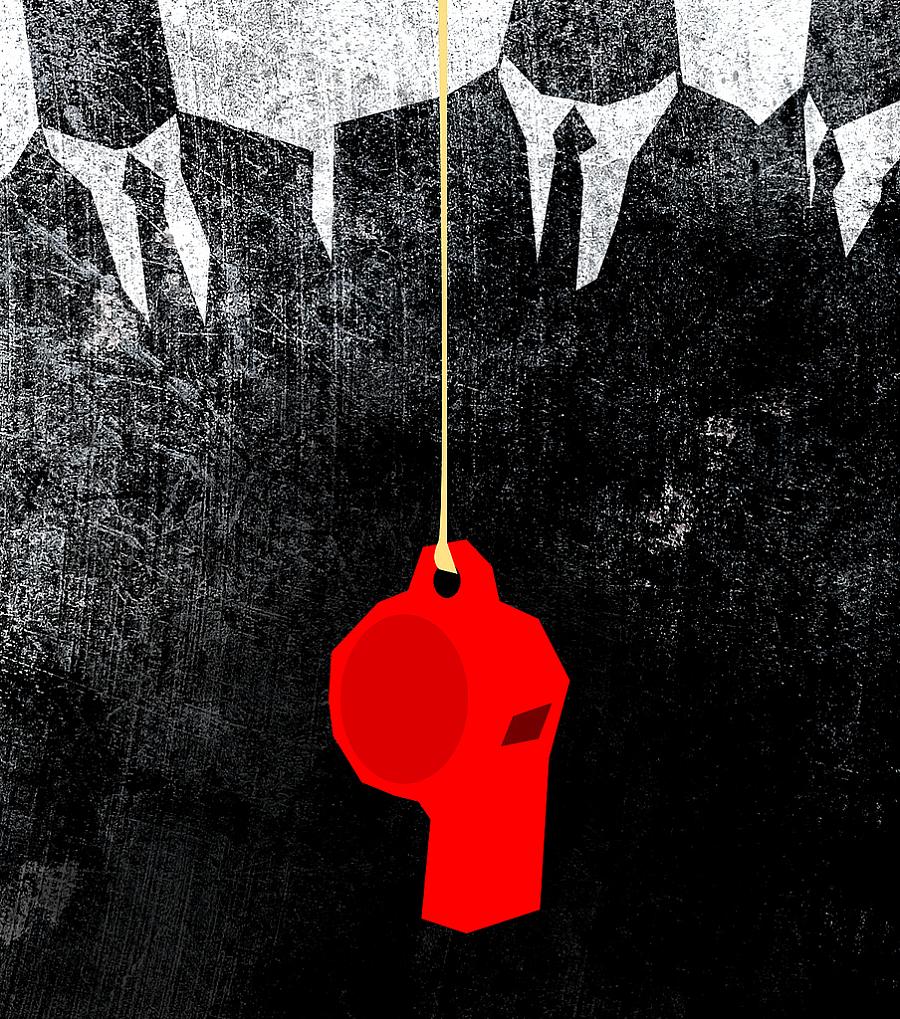Slap: Whistleblower Freedoms Considered By Supreme Court

On Veterans Day, while you are thinking of your friends and family members who have served in the armed forces, or watching one of the many tributes to them and the freedoms they defended, think for a minute about three of the most basic liberties we all should be allowed: freedom of speech, freedom from unreasonable search and seizure and freedom from malicious prosecution.
Then consider the case of whistleblower Charles Rehberg. This month, the U.S. Supreme Court heard arguments in a case where Rehberg had those rights taken away from him.
According to a brief filed with the Supreme Court, Rehberg, a certified forensic accountant, found what he felt were financial improprieties at Phoebe Putney Hospital in Albany, Georgia. These included, according to Joe Carlson at Modern Healthcare, the hospital's "practice of showering board members with lavish travel spending while the tax-exempt public hospital brought collections lawsuits against impoverished residents who didn't pay for hospital care."
After talking with a Phoebe Putney surgeon about what to do, Rehberg started sending to regulators and members of the community anonymous faxes about the financial irregularities.
You can imagine that administrators at Phoebe Putney did not like these faxes. And it would have made sense for the hospital to look into where they were originating and, more importantly, whether the allegations were true. Instead, as Rehberg's brief explains, "Those faxes prompted hospital management to have the Dougherty County District Attorney launch an illegal investigation of the anonymous faxes as a ‘favor' to the hospital."
Rehberg was arrested and subjected to questioning multiple times. He was indicted three times by a grand jury after district attorney investigators concocted a case against him. At one point, a district attorney investigator testified that Rehberg had been indicted even though "there was not a probable cause to indict". In one of the indictments, he was accused of some fairly heinous stuff: aggravated assault and burglary. Every case was ultimately thrown out by a judge, but only after Rehberg's life was thrown into turmoil.
And that's when Rehberg went to the U.S. District Court in Georgia to make a claim that his First, Fourth, and Fourteenth Amendment rights had been violated. The case has worked its way up to the U.S. Supreme Court, which could make a ruling later this year.
It's a credit to former Atlanta Journal-Constitution health writer Andy Miller that the district attorney's investigation of Rehberg was ultimately brought to light.
"As a general rule, the grand jury is not supposed to be used for a prosecutor to benefit private parties," Atlanta criminal defense attorney Jack Martin told Miller. "That could be dangerous."
When a corporation fires someone for blowing the whistle on a practice that harms patients, that's bad. When a government agency sues to block access to public records, that's bad. When a corporation conscripts a government agency to harass, intimidate and publicly humiliate the whistleblower, that's dangerous for all of us.
Every Veterans Day, I remember those close to me who have served with distinction in the military and those who have died while serving. I know that many of you do, too. We owe it to them to make sure cases like Rehberg's are made ever rarer.

